These stark, heart-wrenching Dust Bowl pictures reveal both the vast scope and intimate despair of this tragic time.
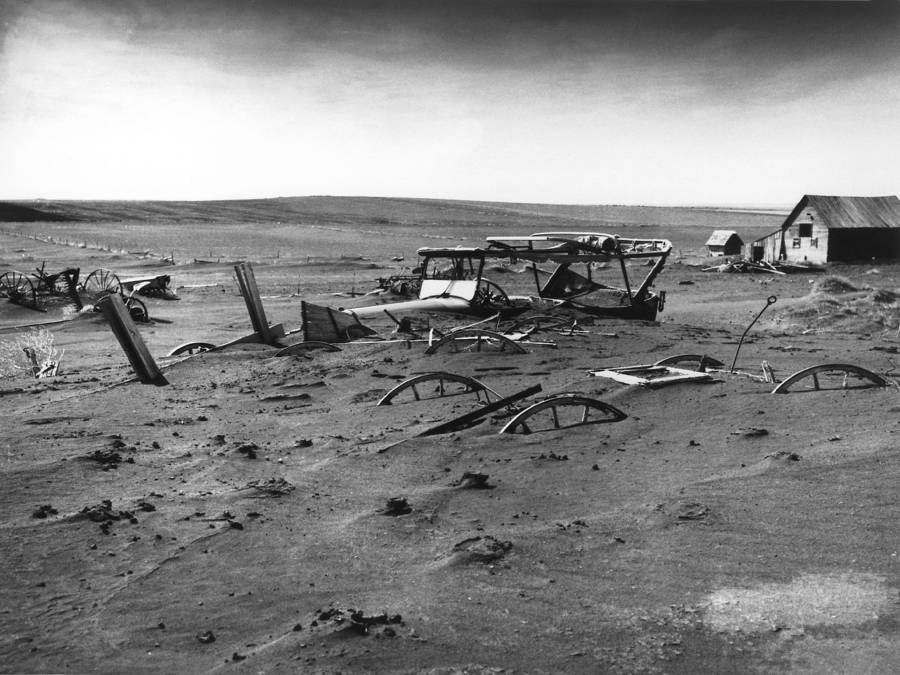
United States Department of Agriculture via Wikimedia Commons

You’ll recognize the stare. You’ve likely seen it in Dorothea Lange’s iconic photo of a California migrant mother (see slide three above). And as you look through other Dust Bowl pictures, you’ll see that stare again and again.
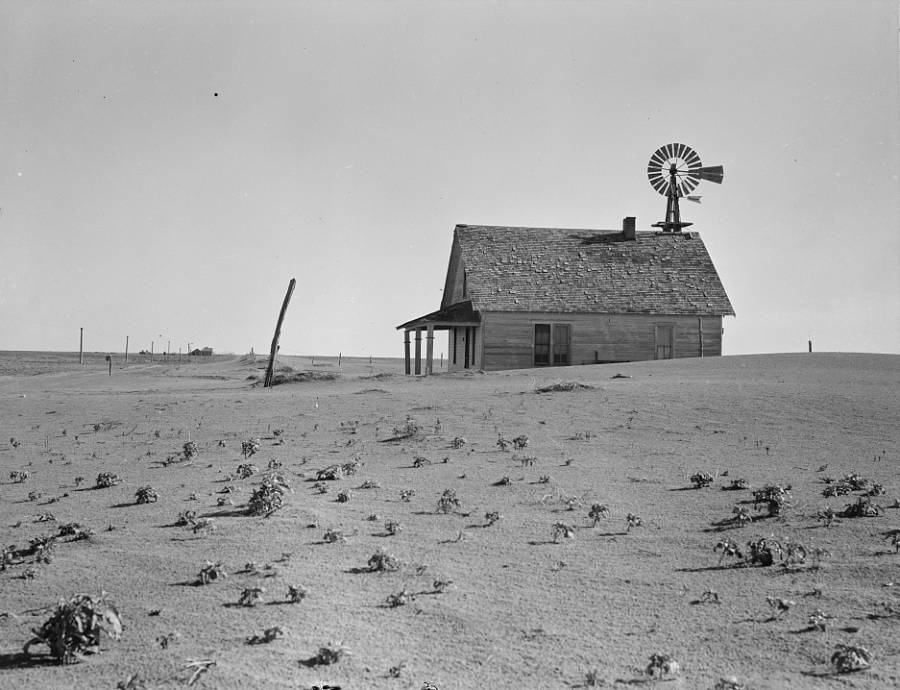
Dorothea Lange/Farm Security Administration via Library of Congress
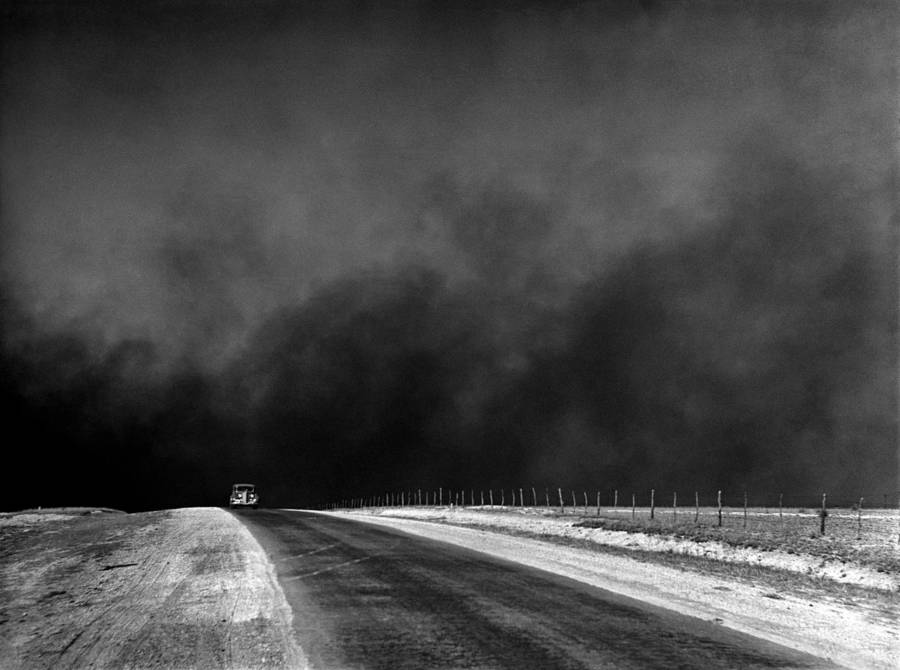
Arthur Rothstein/Farm Security Administration via Library of Congress/Wikimedia Commons
It’s an ineffable look at once vacant and intent, stoic and poignant, broken and resolved — the quintessential thousand-yard stare.
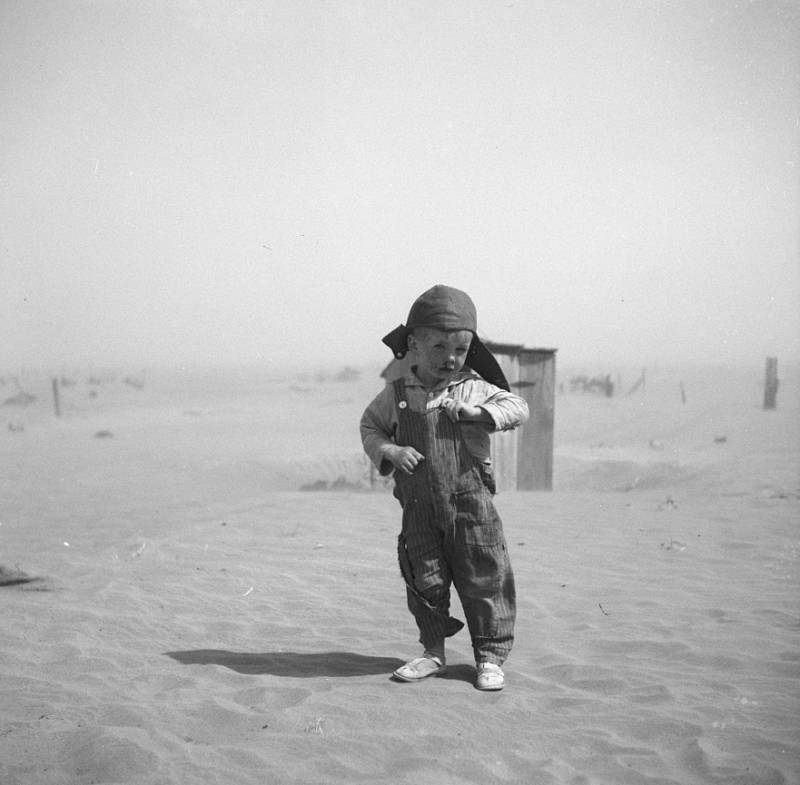
Arthur Rothstein/Farm security Administration via Library of Congress
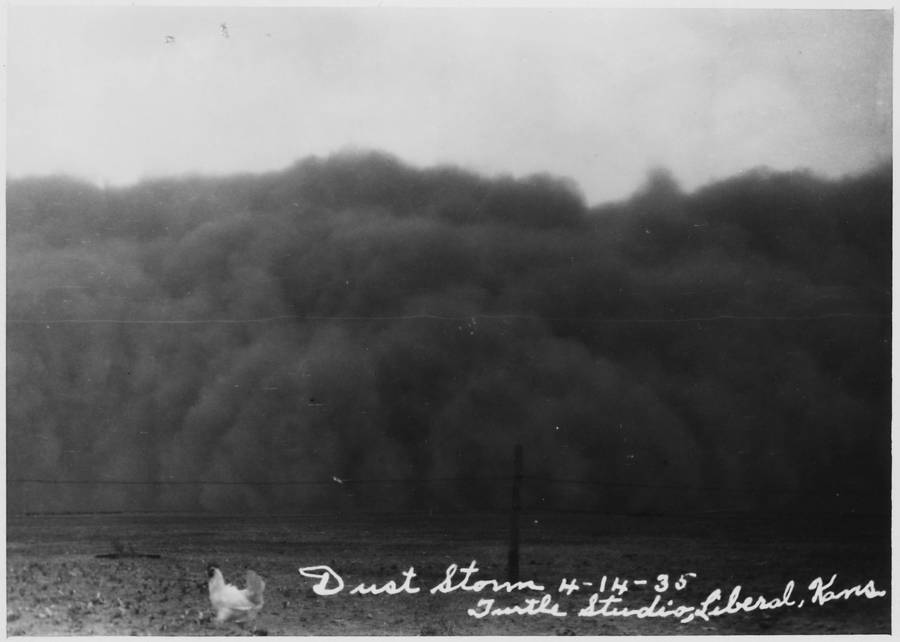
National Archives and Records Administration via Wikimedia Commons
And if any group should summon such a stare, it’s those who lived through the Dust Bowl, the worst manmade ecological disaster in American history.
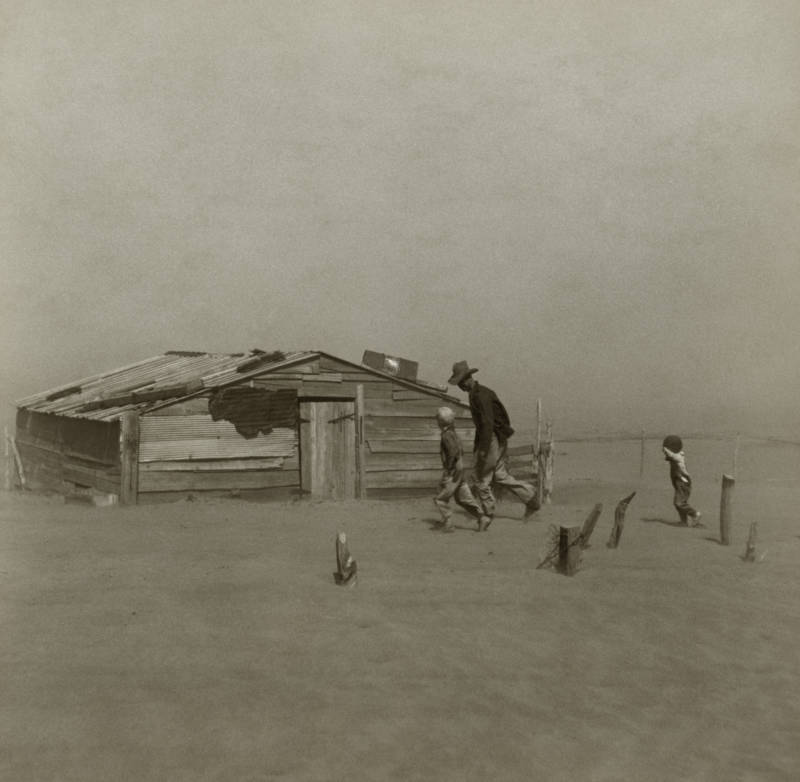
Arthur Rothstein/Farm Security Administration via Library of Congress/Wikimedia Commons
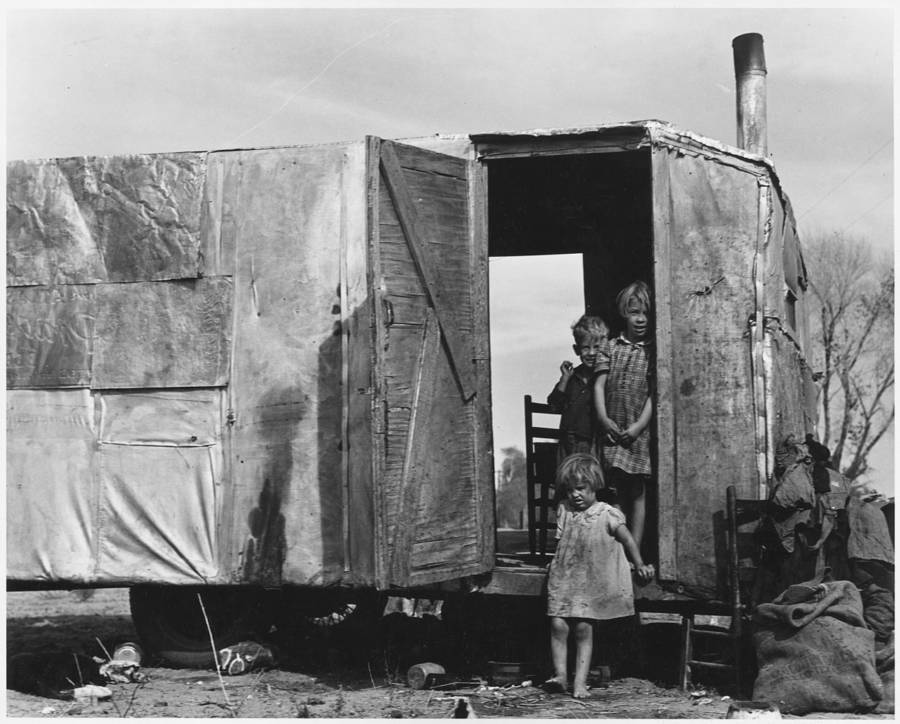
Dorothea Lange/United States Department of Agriculture via National Archives and Records Administration/Wikimedia Commons
Throughout most of the 1930s and into the early 1940s, the Dust Bowl turned much of what’s now known as the American heartland into a virtual wasteland.
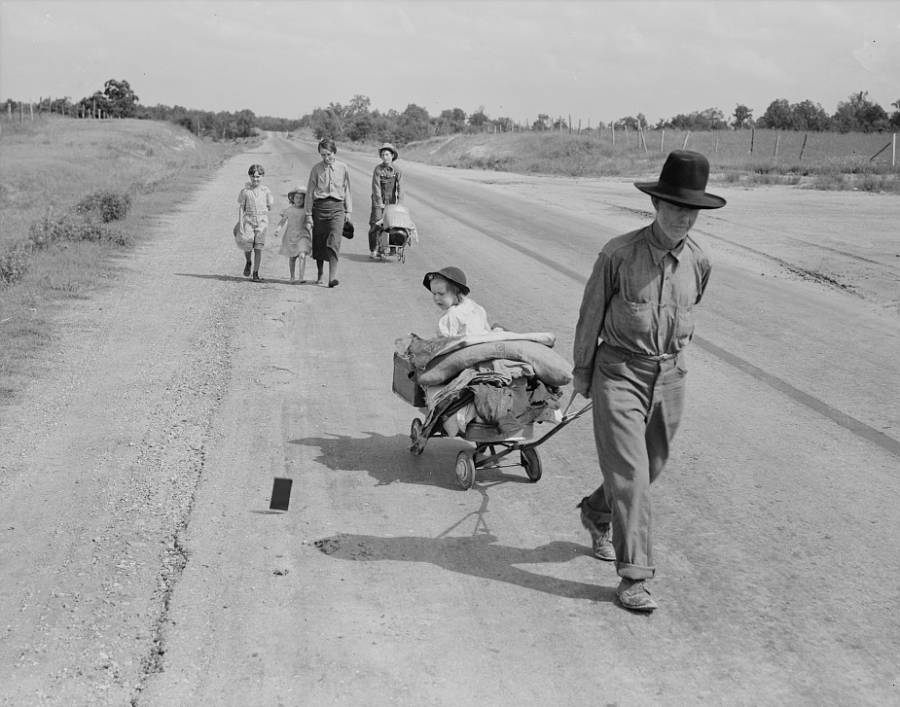
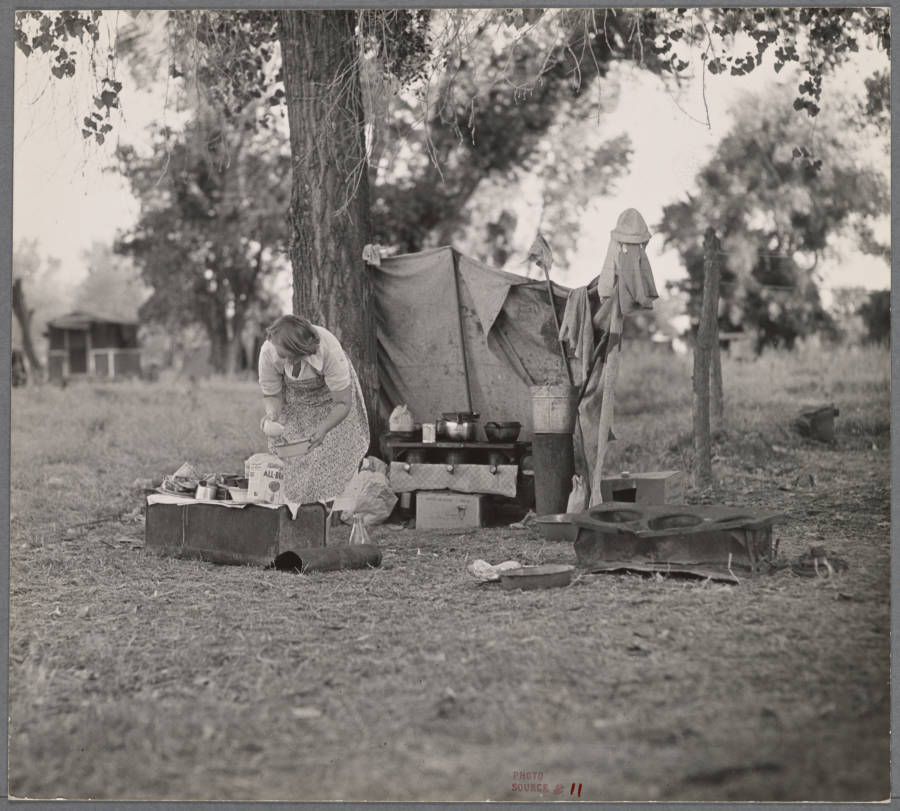
Dorothea Lange/Farm Security Administration via New York Public Library
For nearly a decade, approximately 100 million acres centered around the panhandles of both Oklahoma and Texas endured devastating drought made even more catastrophic by the harmful farming practices that had taken hold in the region the decade before.
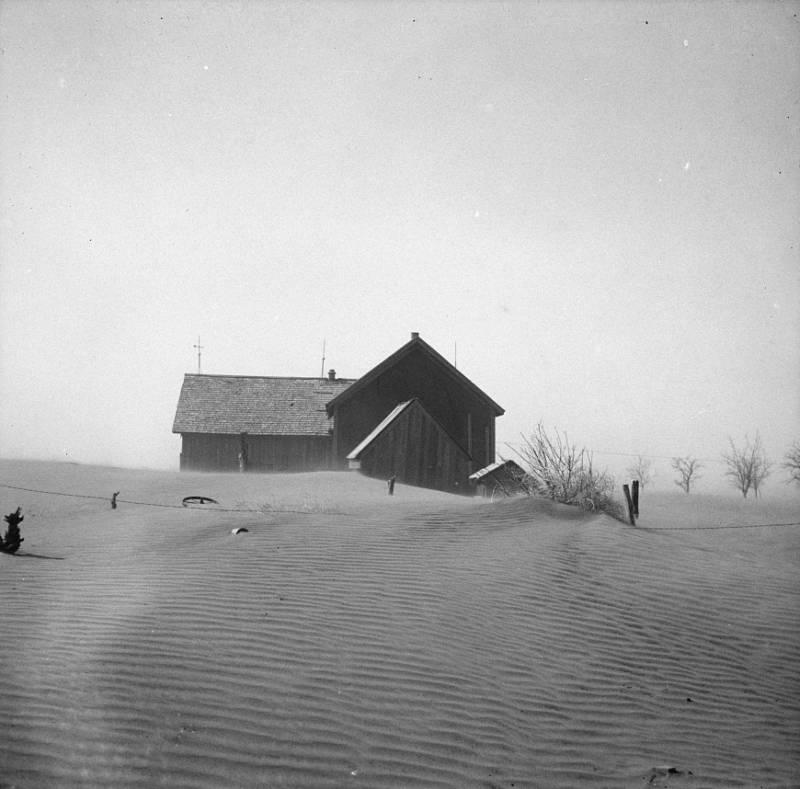
Arthur Rothstein/Farm Security Administration via Library of Congress
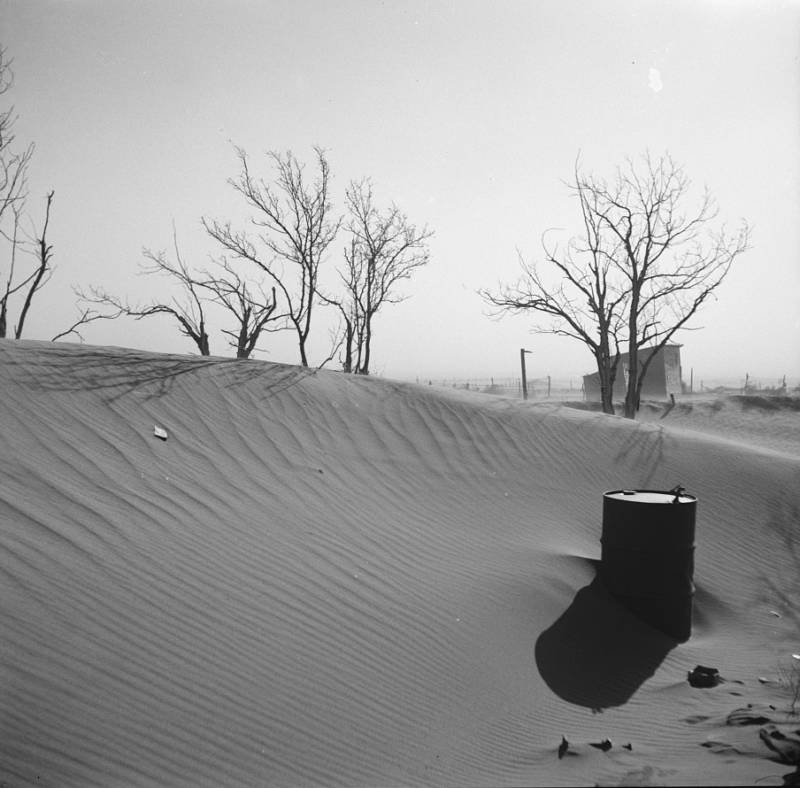
Arthur Rothstein/Farm Security Administration via Library of Congress
Because the region’s arid grasslands received very little rainfall, its natural grasses played an essential part in both holding what little moisture there was in the soil and holding the soil itself down on the ground during periods of intense wind storms.
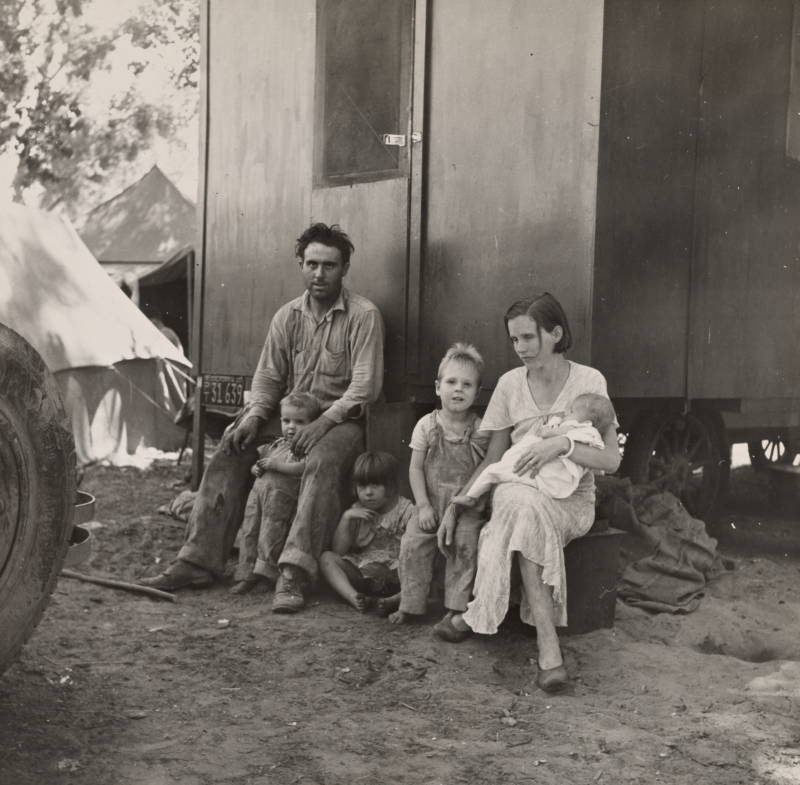
Dorothea Lange/Farm Security Administration via New York Public Library
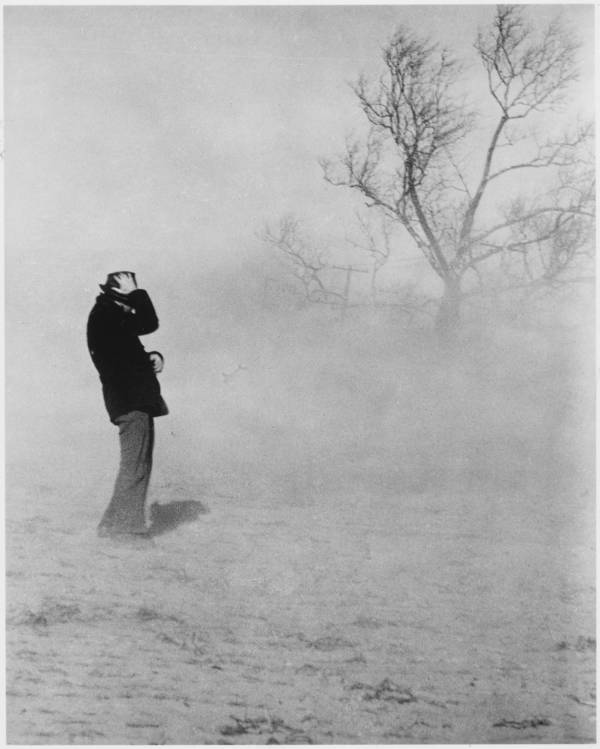
However, during the 1920s, farmers of the Great Plains had plowed away much of this grass in order to make room for crops, thus making this land even more sensitive to both drought and windstorms. And when both of those struck in the mid-1930s, the region’s fate was sealed.
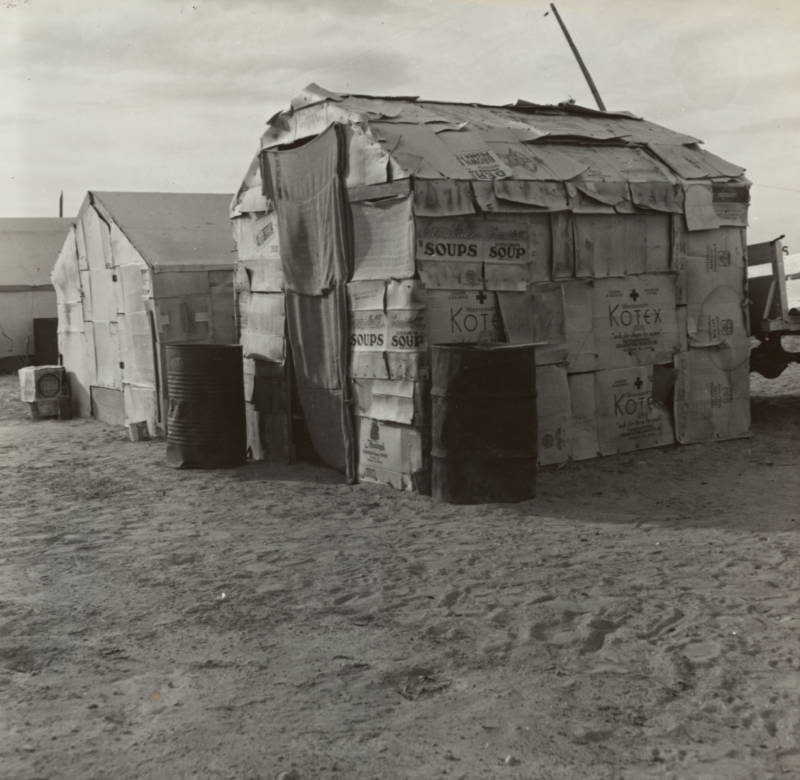
Dorothea Lange/Farm Security Administration via New York Public Library
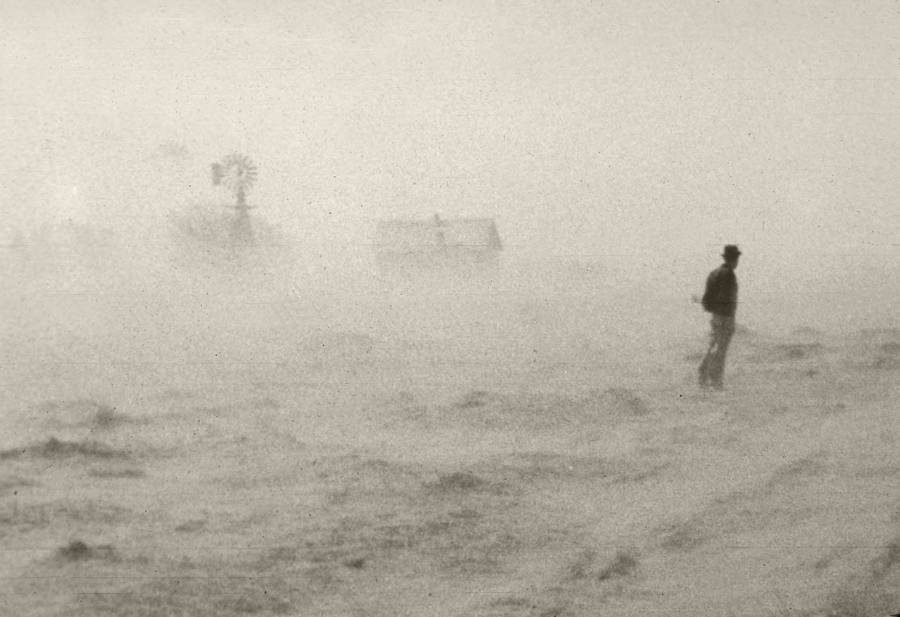
The land turned desolate and the sky went dark as “black blizzards” (dust storms) flared up day in and day out. It was something like a biblical plague.
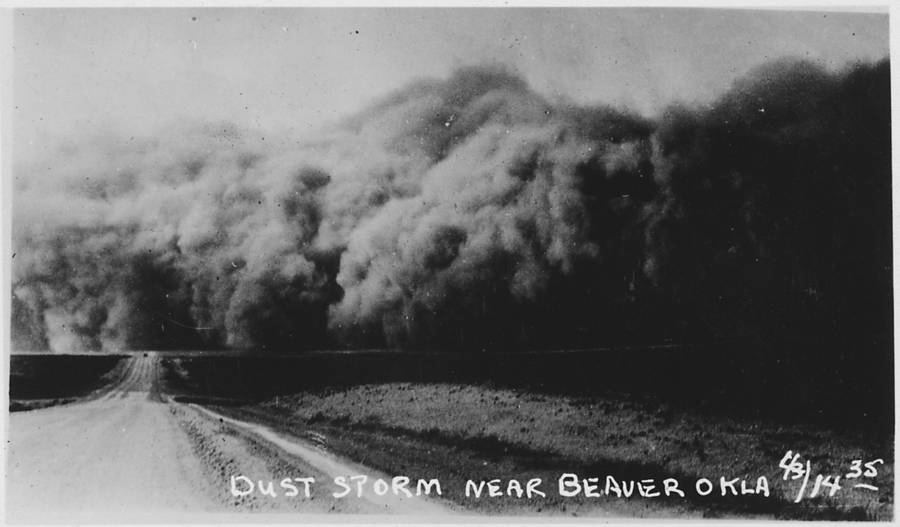
National Archives and Records Administration via Wikimedia Commons
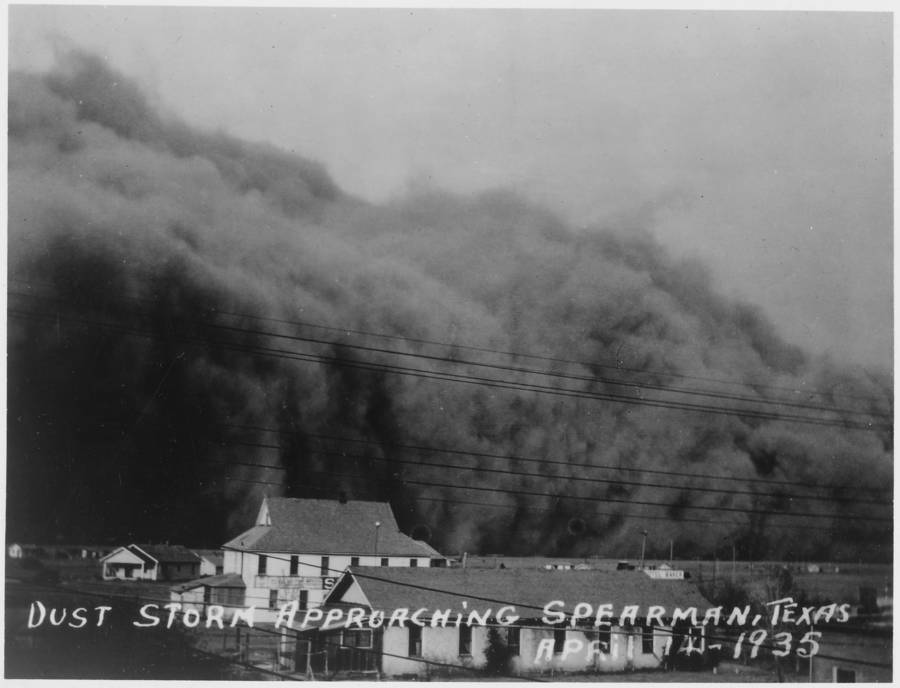
National Archives and Records Administration via Wikimedia Commons
And thus it’s entirely fitting that it caused a tremendous exodus. Between 1930 and 1940, approximately 3.5 million desperately poor Americans abandoned their now barren farms in the Plains states and headed for greener pastures, largely in California.
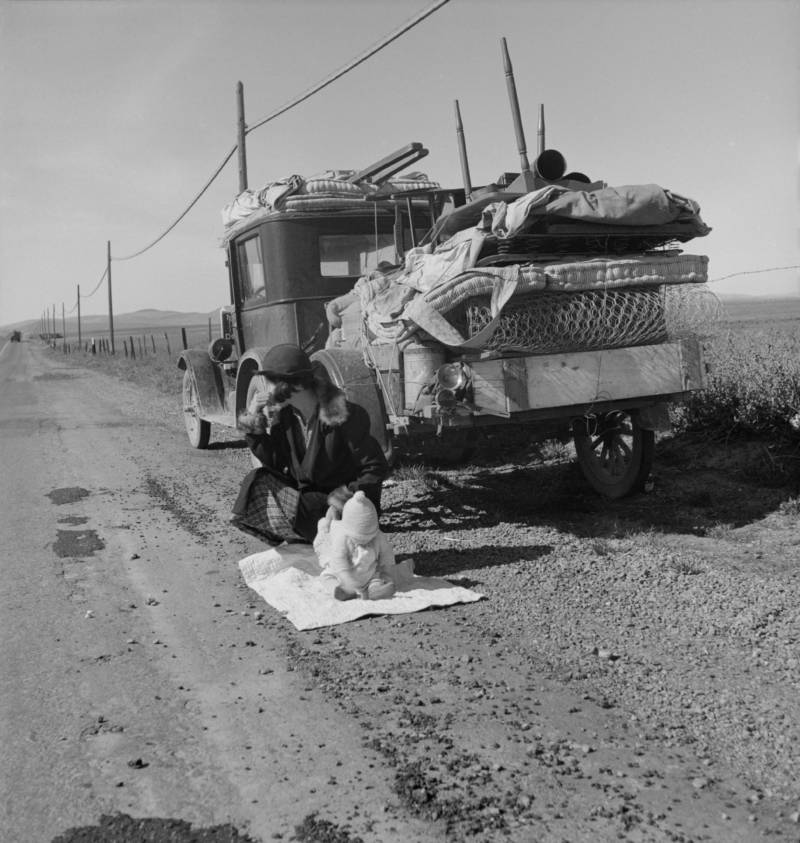
Dorothea Lange/Farm Security Administration via Library of Congress/Wikimedia Commons

Dorothea Lange/Farm Security Administration via New York Public Library
However, while as much as 75 percent of the topsoil had blown away in the region these migrants abandoned, the Great Depression made it such that California’s pastures weren’t actually all that much greener.
Nevertheless, the administration of Franklin D. Roosevelt stepped in with a myriad of aid programs whose efforts ranged from planting trees to block wind and hold soil to distributing food to the hungry to teaching farmers dryland techniques to prevent an episode like this from ever happening again.
Thankfully, in the decades since, nothing quite like it ever has. But I think the extreme heat wave and the unprecedented droughts the West is facing yearly are another signs of worst time and things to come…
And while you prepare, I hope you enjoyed the heart-breaking images by Dorothea Lange and a few others that provide a different look at this one-of-a-kind US tragedy. [ATI]
Here some more articles about the dust bowl and the current dramatic drought and unprecedented heatwave along the Pacific NorthWest.
Now subscribe to this blog to get more amazing news curated just for you right in your inbox on a daily basis (here an example of our new newsletter).
You can also follow us on Facebook and/ or Twitter. And, by the way you can also make a donation through Paypal. Thank you!
You should really subscribe to QFiles. You will get very interesting information about strange events around the world.











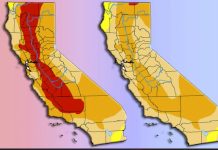
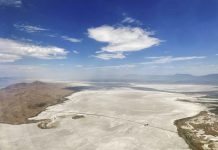

Filthy yids, damn them for centuries, staged Revolutions and famine in Russia in 1917. Then they caused the Great Depression and famine in the United States. Now they are torturing the Palestinians.
Damn this narpod who crucified the Lord God Jesus Christ.
Hitler is a good guy,I know that for sure.
Iconic photography. Life magazine used to put up this type of photography.
Look how tough and gritty these people are despite adversity.
Meh,
I don’t see that look of grit much these days. Rugged individualism has been bred out of America. Now we have nancypants, lounging about working their thumb biceps on their devices, sucking down a latte, and gnawing on an avocado toast. Some don’t even know if they are a front hole or back hole.
The Grapes of Wrath Steinbeck.
Excellent book, in case people still read books.